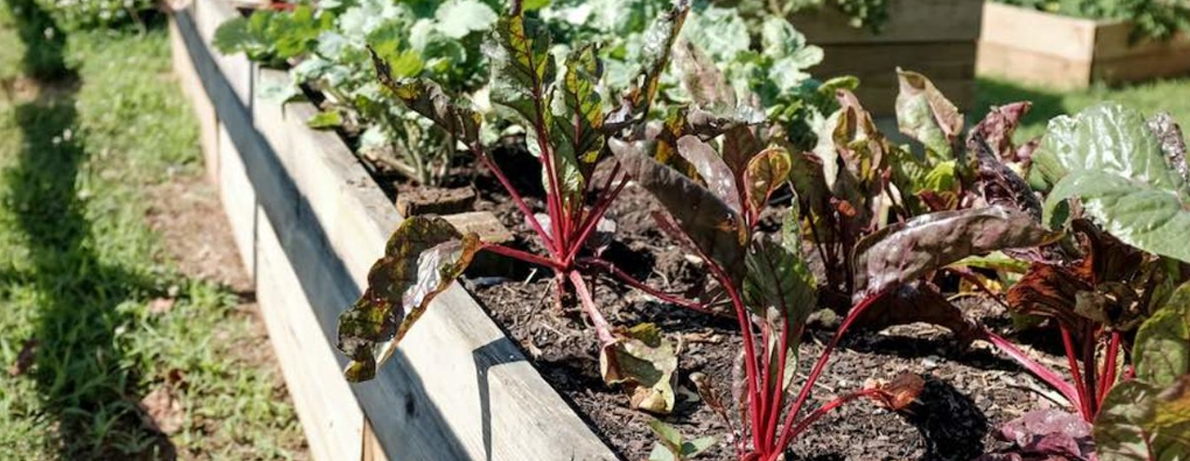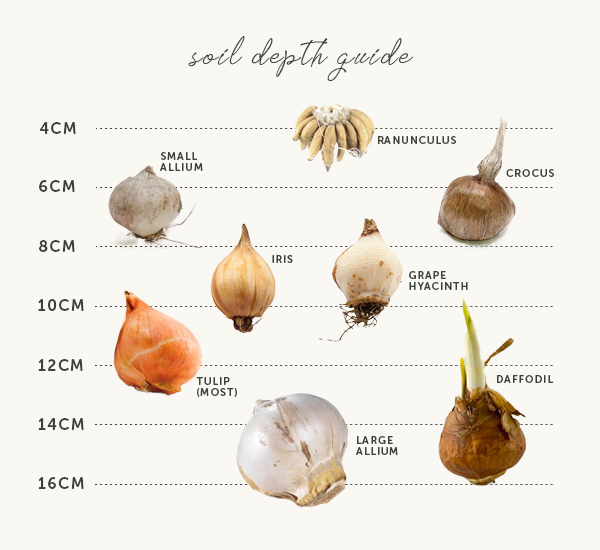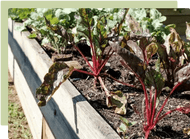Posted by The Gubba Team
29th May 2023
April Garden Guide

Your monthly guide to what's going on in the garden during April - what to plant, prune & fertilise this month. As we move further into Autumn, there's plenty to keep busy with. Read on for some tips & inspo!
 PLANT WINTER VEG & SOW FLOWER SEEDS
PLANT WINTER VEG & SOW FLOWER SEEDS
Time to get those winter veggies in (if you haven't already)! That includes brassicas like broccoli, brussels sprouts, cabbage, cauliflower, collard greens, kale, and turnips. There’s also silverbeet and spinach, and root veggies like carrots and beetroot.
Start sowing these flowers now, for winter and spring flowering blooms: Aquilegia, Alyssum, Calendula, Cineraria, Cornflower, Dianthus, English Daisy, Godetia, Linaria, Livingstone Daisy, Lobelia, Lupin, Nemesia, Snapdragon, Statice, Viola, and Sweet Peas.
Remember to protect your seedlings with a cloche if you're concerned about early frosts. There's also lots of snails & slugs around; keep them at bay with snail bait, beer traps or wool mulch.
PLANT BULBS
Now's the time to be planting your favourite spring-flowering bulbs! Get them in with some bulb food to get them off to the best start. If you're new to bulb growing, some popular spring-flowering varieties include:
Crocus (Late winter to early spring bloom)
Ranunculus (Mid spring bloom)
Tulip (Early spring bloom)
Bluebell (Late spring to summer bloom)
Daffodil (Early to mid spring bloom)
Hyacinth (Mid spring bloom)
Most spring-flowering bulbs need consistent cool temperatures (below 10°C during the day) in order to bloom properly. If you live in an area with warmer winters, certain bulbs will need a bit of extra help - this includes daffodils, tulips, crocus and hyacinths. You can "pre-chill" your bulbs by popping them in the fridge for about 8 weeks prior to planting.
Tips for pre-chilling...
- Keep your bulbs in the crisper draw inside a paper bag - NOT plastic
- Don't place them near the back of the fridge (it's likely too cold)
- Keep them well away from fruit, especially apples or pears. Fruit emits a gas called ethylene as they ripen which can damage bulbs.
FEED PLANTS & REPLENISH SOIL
Autumn is the time to start replenishing your soil before the cooler months set in. Feeding your plants helps to replace any nutrients lost over the summer growing season, and provides an extra layer of protection for your plants over winter.
As growth is limited throughout the colder seasons, most plants only need a small amount of nutrients to keep them going. Choose a plant food that slowly releases nutrients over a long period of time; natural fertilisers such as compost, worm castings, or sheep pellets are ideal. Organic matter also does wonders for your soil; it improves soil structure, aids aeration and balances pH levels. So many benefits!
Don't forget to fertilise hungry citrus trees now to give them an extra boost.
Shop citrus food
PRUNE PLANTS
Give your garden a good tidy up by removing old growth. Cutting back dead stems and top growth in autumn helps to prevent fungal disease; just make sure your tools are clean & sharp to prevent any disease from spreading. You can also use a pruning paste over fresh pruning cuts - this acts as a barrier to prevent diseases from entering the plant.
If your garden bed is full of messy, exhausted perennials (like scabiosa or echinacea), now is the time to remove any spent flower heads - maybe have a go at seed saving, and raise your own next season!


























